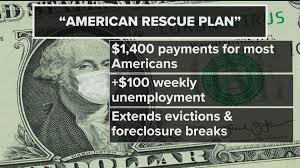If you receive $600 or more payments in total for goods and services through a third-party payment network, such as Venmo, Cash App, or Zelle, these payments will now be reported to the IRS.
The new rule results from the American Rescue Plan signed into law in March 2021 and will mainly impact business owners using third-party payment network providers. The IRS is cracking down on payments received through apps, such as Cash App, Zelle or Paypal to ensure those using the third-party payment networks are paying their fair share of taxes.
Previously, the IRS only required third-party payment networks to report payments that met both of the following reporting requirements:
- Gross payments that exceed $20,000, AND
- More than 200 transactions within the current year.
Beginning Jan. 1, 2022, third-party payment networks will be required to send users Form 1099-K for transactions made by mail or electronically. This means you don’t have to worry just yet: The new tax reporting requirement will impact your 2022 tax return filed in 2023.
Here’s how the new tax reporting will work.
Your New 1099-K Tax Reporting Requirements
Starting Jan. 1, 2022, You will receive Form 1099-K from third-party network providers for income received through electronic forms of payments by Jan. 31 of the following year.
In the near future, companies like PayPal, Zelle or Cash App may request additional information from you to properly report your transactions on your Form 1099-K. You may be asked to provide your Employer Identification Number (EIN), Individual Tax Identification Number (ITIN) or Social Security Number (SSN) if this information is not on file.
Your Form 1099-K will include payments from credit cards and online payments. You are required to report any income listed on your Form 1099-K from your taxable transactions on your income tax return.
Will Venmo, Cash App and Zelle Users Have to Pay a New Tax?
For Venmo, Cash App and other users, this may sound like a new tax—but it’s merely a tax reporting change to the existing tax law.
Form 1099-K is a tax form sent to users that may include both taxable and nontaxable income sources. A taxable source of income is included in your income, such as wages, rents, tips, and retirement income. Whereas a nontaxable source is excluded from your income and you will not need to report on your tax return.
Some examples of nontaxable income are:
- Money received from a friend as a reimbursement
- Money received from a roommate to pay their share of the rent
- Money received from a loved one as a gift
Also, if you receive money from selling a personal item at a loss, you are not required to report the amount on your tax return. For example, if you purchased a dress for $100 and sold it for $50, the amount is not taxable.
But while the new law does not create a new tax, you must keep good records of any taxable income received.
How to Keep Good Records for Tax Reporting
Since your Form 1099-K may include both taxable and nontaxable income, keeping good records is essential. You want to select a recordkeeping system that clearly reflects your income.
You should maintain records such as bank statements, receipts, invoices and other financial documents to reflect taxable income. You can consider saving your records either in electronic form or manually.
If you are a business owner, it is a good idea to set up a third-party network platform, such as Cash App, Zelle, or Venmo, separately for both your business and personal transactions. This way, you can easily track business transactions.
Also, keeping good records can be beneficial to prove both taxable and nontaxable income sources if the IRS audits your tax return.

